Related Research Articles

Elián González Brotons is a Cuban industrial engineer and politician who, as a young child, became embroiled in an international custody and immigration controversy in 2000 involving the governments of Cuba and the United States, his father Juan Miguel González Quintana, his other relatives in Cuba and in Miami, and Miami's Cuban community.
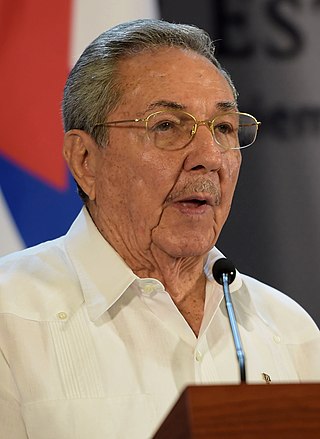
Raúl Modesto Castro Ruz is a retired Cuban politician and general who served as the first secretary of the Communist Party of Cuba, the most senior position in the one-party communist state, from 2011 to 2021, and President of Cuba between 2008 and 2018, succeeding his brother Fidel Castro.
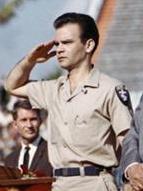
Manuel Francisco Artime Buesa, M.D. was a Cuban-American who at one time was a member of the rebel army of Fidel Castro but later was the political leader of Brigade 2506 land forces in the abortive Bay of Pigs invasion of Cuba in April 1961.
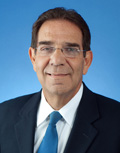
Xavier Louis Suarez is an American politician who was the first Cuban-born mayor of Miami and was a Miami-Dade county commissioner.
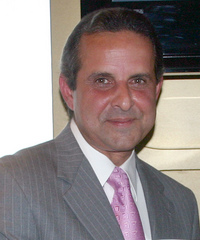
Manuel Alberto Diaz is a Cuban-American politician who served as the chair of the Florida Democratic Party from 2021 to 2023. From 2001 to 2009, he served as the mayor of Miami, Florida.
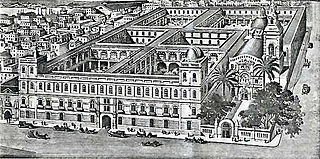
Belen Jesuit Preparatory School is a private, Catholic, all-male, preparatory school run by the Antilles Province of the Society of Jesus in Tamiami, unincorporated Miami-Dade County, Florida, operated by the Society of Jesus. It was established in Havana, Cuba, by the Jesuits in 1854, but moved to the United States after the communist government of Fidel Castro, himself an alumnus, took power and expelled the Jesuits. It has since made the Cardinal Newman Society's honor roll. The name Belen is Spanish for "Bethlehem."
The Coordination of United Revolutionary Organizations was a militant group responsible for a number of terrorist activities directed at the Cuban government of Fidel Castro. It was founded by a group that included Orlando Bosch and Luis Posada Carriles, both of whom worked with the CIA at various times, and was composed chiefly of Cuban exiles opposed to the Castro government. It was formed in 1976 as an umbrella group for a number of anti-Castro militant groups. Its activities included a number of bombings and assassinations, including the killing of human-rights activist Orlando Letelier in Washington, D.C., and the bombing of Cubana Flight 455 which killed 73 people.
Carlos M. de la Cruz Sr. is a Cuban-born American businessman, the chairman of CC1 Companies, Inc. which include Coca-Cola Puerto Rico Bottlers, CC1 Beer Distributors, Inc., Coca-Cola Bottlers Trinidad & Tobago, and Florida Caribbean Distillers, LLC. The companies together employ 2,500 people and have annual sales of $1 billion.
The Agrupación Católica Universitaria is a prominent Christian life community (CVX-CLC) composed of professional Catholic men. It is based in Miami, Florida.

Juana de la Caridad "Juanita" Castro Ruz is a Cuban activist as well as the sister of Fidel and Raúl, both former presidents of Cuba, and Ramón, key figure of the Cuban Revolution. After collaborating with the Central Intelligence Agency in Cuba, she has lived in the United States since 1964.

The Instituto Técnico Militar, originally designed as the Colegio de Belén, Havana, is located at 45th and 66th streets in Marianao, Havana, Cuba.
Ricardo Pau-Llosa is a Cuban-American poet, art critic of Latin American art in the US and Europe, art collector, and author of short fiction.
Enrique San Pedro, S.J. was a Cuban-born prelate of the Roman Catholic Church. He served as the fourth bishop of the Diocese of Brownsville in Texas from 1991 until his death in 1994. He previously served as an auxiliary bishop of the Diocese of Galveston-Houston from 1986 to 1991.
Luis Enrique Aguilar Leon, J.D., Ph.D. was a Cuban journalist, professor and historian. He was a professor to Bill Clinton and a classmate of Fidel Castro.

Polita Grau was the First Lady of Cuba, a Cuban political prisoner, and the "godmother" of Operation Peter Pan, also known as Operación Pedro Pan, a program to help children leave Cuba. Operation Peter Pan involved the Roman Catholic Church and Monsignor Bryan O. Walsh from 1960 to 1962, which were involved in encouraging Cuban parents to send their children to live with U.S families to rescue them from Communism.
Alfredo Joaquin González Durán is a Cuban-born lawyer and an advocate for dialogue as a way to bring regime change in Cuba. His views are considered controversial in some parts of the Cuban exile community in Miami.

Normando Hernández González is a Cuban writer and journalist who now lives in the United States.
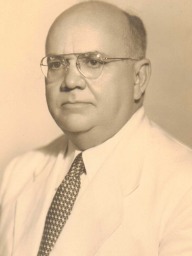
Manuel Antonio Dorta-Duque was a Cuban politician, lawyer, writer, university professor, and signator of the 1940 Constitution of Cuba. He was National Chief of the Order of Knights of Columbus and Rector of the Pontifical Academy of Social Sciences in Havana. He was named Defender of the Catholic Faith in Cuba, and on July 27, 1950 Pope Pius XII granted him the Pro-Ecclesia et Pontiff distinction for his efforts. He was a benefactor and generous donor to the Catholic Church, and helped build the Iglesia Nuestra Señora de la Candelaria, dedicated to the Virgen from the Island of Tenerife, Canary Islands, where his ancestral roots can be found. In 2008, this cathedral was named a UNESCO World Heritage site.

The Colegio de Belén located between 45th and 66th streets – situated next door to the Tropicana nightclub – in Marianao, Havana, was designed in 1925 by the architect Leonardo Morales y Pedroso and his brother the engineer Luis Morales y Pedroso of the firm Morales y Compañía Arquitectos.
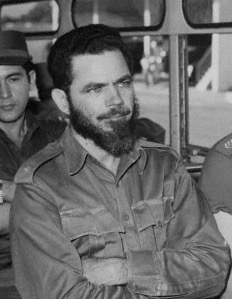
The Huber Matos affair was a political scandal in Cuba when on October 20, 1959, army commander Huber Matos resigned and accused Fidel Castro of "burying the revolution". Fifteen of Matos' officers resigned with him. Immediately after the resignation, Castro critiqued Matos and accused him of disloyalty, then sent Camilo Cienfuegos to arrest Matos and his accompanying officers. Matos and the officers were taken to Havana and imprisoned in La Cabaña. Cuban communists later claimed Matos was helping plan a counter-revolution organized by the American Central Intelligence Agency and other Castro opponents, an operation that became the Bay of Pigs Invasion.
References
- PBS interview; "Interview Francisco Aruca"
- The New York Times article "If Castro Had a Talk Show, It Might Sound a Bit Like This"
- Progreso Weekly article "The Process of Changes is Ongoing: Francisco Aruca chats with Manuel Ramy"
- Miami New Times article "Class Act"
- Miami New Times article "Capitalist or Commie"